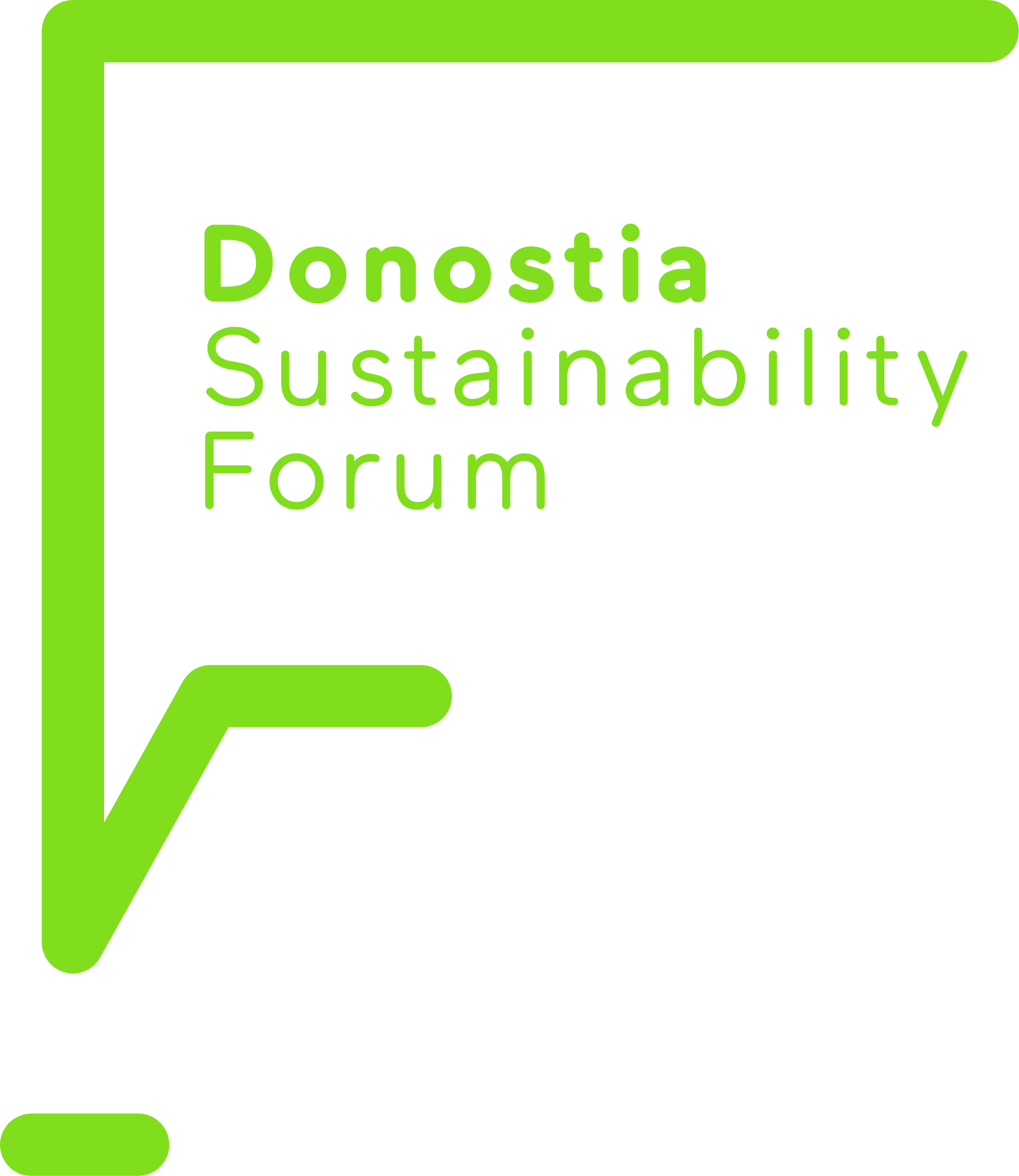Two young additions to the DSF
Ekiñe Velasco and Ainhoa Usandizaga are the two new additions to the Donostia Sustainability Forum (DSF).
The loss of marine habitats and species can be reversed by 2050
The symposium "The Rocky Coast: Geology, Ecology, Sculpture" organised by the UPV/EHU Summer Courses brought together specialists in art, literature, geology and ecology on June 3 and 4 . The event, held at the Aquarium in San Sebastian, was part of the inauguration of the work Hondalea by Cristina Iglesias.
"If the 20th century was the century of human rights, the 21st must be the century of the rights of nature".
Biomimetics (bio=life, mimetics=imitation) as a techno-science is in full development. Aristotle and Plato already spoke of biomimetic approaches and Leonardo Da Vinci designed flying devices imitating the flight of birds. Now the discipline is experiencing a "new dawn" in how to translate its philosophy into praxis. Transferring to artificial intelligence how to learn that information. It is a techno-science under construction. It's like a child learning to run. "We have to do it soon because of the environmental problems we have.
The environmental pollution enters the fetus through the placenta
INMA Childhood and Environment Project.
The INMA project arises from the interest to identify the effects of exposure to different environmental factors during pregnancy and its effects on the physical and neuropsychological health of the child.
Improving citizens' environmental awareness
The Donostia Sustainability Forum, organized by the Summer Courses of the University of the Basque Country and the BBVA Foundation, received Antonio Vercher in one of its sessions open to the public. Vercher is a Prosecutor of the Coordinating Prosecutor's Office for the Environment and Urban Planning since 2006.
Effects of environmental exposures on human health
Environmental pollution, responsible for 25% of the diseases we suffer, is a problem that is and will be if serious action is not taken on climate change. "We have improved in water quality or waste management, but the planet is not exactly managed in a sustainable way. It makes no sense if we eat fish from the Pacific or wear pants made in China. These are ways of consuming that generate environmental alterations that have a direct impact on health". This was stated by the director of the course "Tell me where you live and I will tell you what you are exposed to.
Sustainable gastronomy: a necessary ingredient for social transformation
Society is currently facing structural, interconnected and complex challenges that require new, innovative and transversal approaches. This is why, in the midst of a climate emergency, the incorporation of the environmental variable into the gastronomic plate will be fundamental.
If we cannot guarantee the welfare of the communities, we cannot protect orangutans
Veterinarian Karmele Llano, leader of International Animal Rescue Indonesia, an organization dedicated to the conservation of orangutans and other endangered species on the island of Borneo, participated in the open session organized by the Donostia Sustainability Forum, within the framework of the Summer Courses of the UPV/EHU.
It is necessary to strengthen judicial guarantees in the use of Artificial Intelligence
Eloy Velasco, Magistrate of the National Court of Spain will participate in the Summer Course about "Crimes against minors and women in social networks: how they are investigated and how to protect victims", to discuss the new tools that are available in the arrest of criminals.
We have to act fast. Every degree counts
Mikel González: The speed of the energy transition will depend a lot on the degree of social support, and for this it is key that policies are socially just.
With current technologies we could already decarbonize 80% of CO2 emissions.



